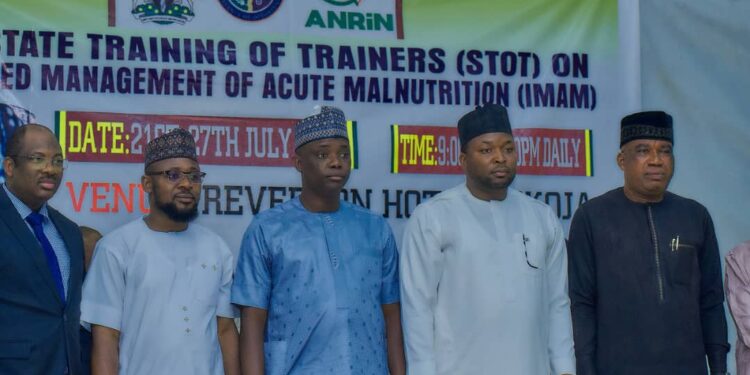Kogi State Governor, Usman Ododo, has launched an ambitious plan to combat child malnutrition across all communities statewide. The Kogi malnutrition training aims at training and arming Health care workers in the fight against malnutrition in the state.
He inaugurated a six-day Integrated Management of Acute Malnutrition (IMAM) training for 10,000 health workers and community volunteers.
Governor Ododo, represented by Chief of Staff Ali Bello, emphasized the urgency of tackling nutrition challenges in vulnerable groups.
The initiative equips frontline workers, storekeepers, and volunteers with vital tools to identify, treat, and prevent malnutrition cases.
He noted that a child’s first 1,000 days, from conception to age two, critically shape their health and cognitive development.
As part of the effort, Ododo’s administration invested millions of naira in purchasing therapeutic foods for referral centres statewide.
He also approved the establishment of three IMAM Stabilization Centres to manage severe malnutrition cases in all districts.
Additionally, the government will absorb medical treatment costs for malnourished children with co-morbidities through its health insurance agency.
Ododo urged traditional rulers, local authorities, and faith-based organisations to mobilize support across all local government areas.
He further revealed plans to train 10,000 women in homestead gardening, backed by free farming tools and improved crop seedlings.
Other measures include creating nutrition departments in ministries and providing budget lines for sustainable nutrition interventions.
Dr. Adams Abdulazeez, Kogi’s Health Commissioner, is leading efforts to transform nutrition indicators across the state’s health sector.
Chief Medical Director Ayo Olayemi described the six-day IMAM training as pivotal to reversing Kogi’s poor nutrition indices.
Despite previous investments, malnutrition remains a significant threat, requiring a more strategic and decentralized intervention approach.
This renewed focus aligns with broader state efforts to strengthen health systems and improve maternal and child outcomes long term.





































